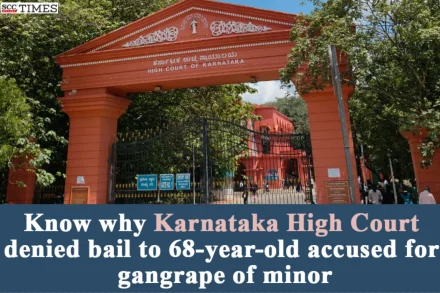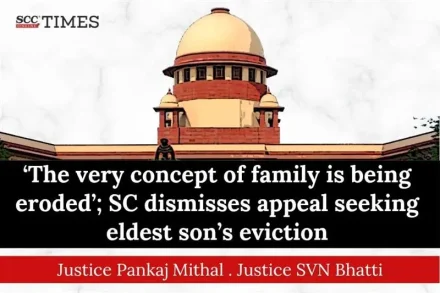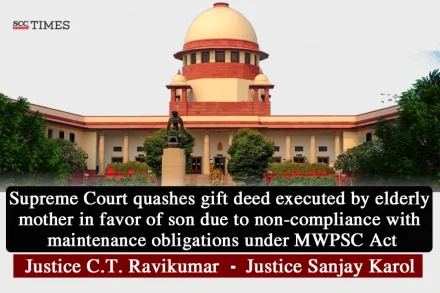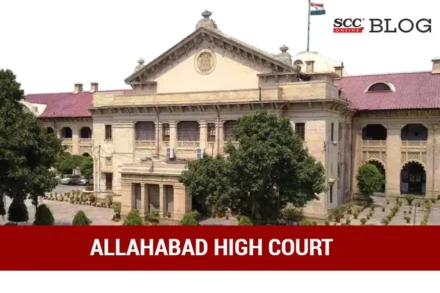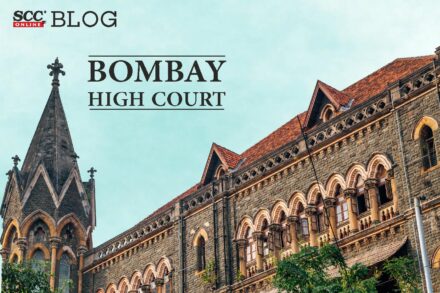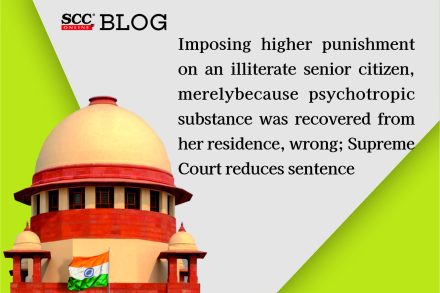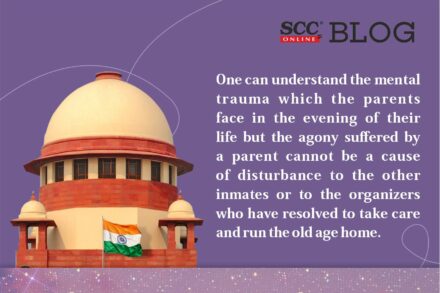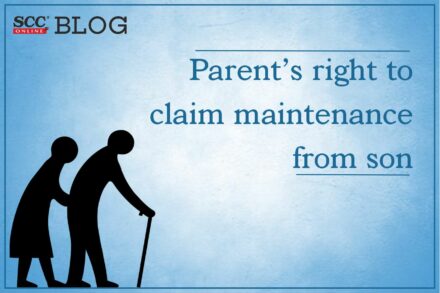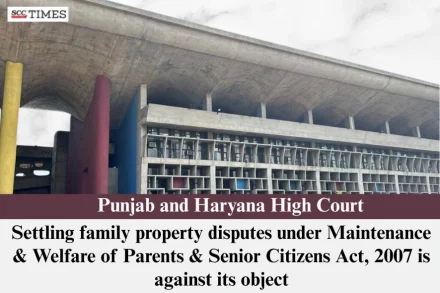
Settling family property disputes under Maintenance & Welfare of Parents & Senior Citizens Act, 2007 is against its object: Punjab and Haryana High Court
In the case at hand, a transfer deed was executed between a senior citizen and his grandchildren, which stated that the transfer was subject to the condition that the transferee would provide the senior citizen with basic amenities.


